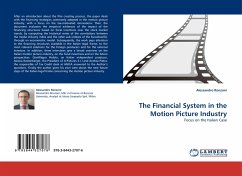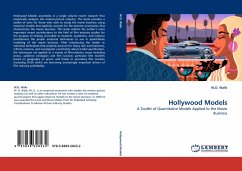After an introduction about the film creating process, the paper deals with the financing strategies commonly adopted in the motion picture industry, with a focus on the tax-motivated innovations. Then, the document evaluates the empirical evidences of the impact of the financing structures based on fiscal incentives over the stock market trends, by computing the historical series of the correlations between the media industry index and the other sub indexes of the Eurostoxx50, through an econometric model. Subsequently, the work pays attention to the financing structures available in the Italian legal frame, to the most relevant solutions for the foreign producers and for the external investors. In addition, three interviews give a broad overview on the Italian motion picture industry, on the fiscal incentives and on the future perspectives. Gianfilippo Pedote, an Italian independent producer, Alessia Ratzenberger, the President of A-Pictures S.r.l and Andrea Pietra, the responsible of Tax Credit desk at ANICA answered to the Author's questions. Finally the author gives his own view about the next future steps of the Italian legal frame concerning the motion picture industry.
Bitte wählen Sie Ihr Anliegen aus.
Rechnungen
Retourenschein anfordern
Bestellstatus
Storno








